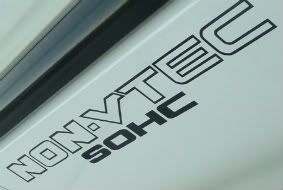I am currently debating between these two headsets, and I am sure nobody on here has any first hand experience, but I figured I would drop the line anyway, to see what I came up with.
http://www.bose.com/controller?event..._headset_index
http://www.bose.com/pdf/customer_ser..._headset_x.pdf
http://www.lightspeedaviation.com/co.../Products/Zulu
http://www.lightspeedaviation.com/pu...uUG_online.pdf
Bose:
Pros:
1) Lightest available (12OZ for the BOSE vs 13.9OZ for the Lightspeed) 1 oz (actually 1.9) might not seem like much, but that is a 14% weight reduction, and when you are wearing them all day, it does make a difference. For comparison, my current headset weighs 16.5 OZ without the chord, so probably closer to 18OZ. That is a 30% weight reduction over what I have now. Also, figure that under g's that can amount to nearly a pound difference on your head.
2) Generally voted the #1 headset by those who use them. Highly regarded by all pilots I have ever talked to that use them.
3) Bose is generally held to be the leader in noise cancelling technology.
4) Generally easy financing terms.
5) Free 30 day trial.
6) Bose generally has excellent support for their products.
7) Supposedly designed to have light clamping forces on the head, while still providing an excellent seal. Everyone I have talked to confirms this, although I haven't compared first hand which design is actually more fatigue resistant.
8) The frequency range is the same on both headsets. The BOSE runs from 15Hz-15kHz while the Lightspeed is 20Hz-20kHz. It seems the lower frequency band would be more useful, since a lot of the noise we need to cancel is low level vibration etc. I don't know this scientifically, and truthfully, every airplane would be different.
9) I believe the Bose offers more total noise cancellation.
Cons:
1) More expensive
2) Not compatible with bluetooth devices as far as I can tell.
Lightspeed:
Pros:
1) Cheaper
2) Bluetooth compatible
3) Highly regarded by those who have them.
4) Lightspeed has been around and involved in ANR headsets for a long time, as have Bose, Telex and Sennheiser.
Cons:
1) 14% heavier.
2) Not as widely used apparently. I haven't met nearly as many people who use Lightspeed as Bose.
3) Not as good financing terms.
4) Not so sure that the bluetooth connectivity is as important.
Both headsets have auxiliary audio inputs, so I could plug in say, an iPod if I wanted to. Of course, most of our aircraft also have those, so that isn't a huge deal on a daily basis, although it would be nice if I were flying one that didn't have that feature installed, and truthfully, you are normally busy enough anyway that it isn't an issue.
http://www.bose.com/controller?event..._headset_index
http://www.bose.com/pdf/customer_ser..._headset_x.pdf
http://www.lightspeedaviation.com/co.../Products/Zulu
http://www.lightspeedaviation.com/pu...uUG_online.pdf
Bose:
Pros:
1) Lightest available (12OZ for the BOSE vs 13.9OZ for the Lightspeed) 1 oz (actually 1.9) might not seem like much, but that is a 14% weight reduction, and when you are wearing them all day, it does make a difference. For comparison, my current headset weighs 16.5 OZ without the chord, so probably closer to 18OZ. That is a 30% weight reduction over what I have now. Also, figure that under g's that can amount to nearly a pound difference on your head.
2) Generally voted the #1 headset by those who use them. Highly regarded by all pilots I have ever talked to that use them.
3) Bose is generally held to be the leader in noise cancelling technology.
4) Generally easy financing terms.
5) Free 30 day trial.
6) Bose generally has excellent support for their products.
7) Supposedly designed to have light clamping forces on the head, while still providing an excellent seal. Everyone I have talked to confirms this, although I haven't compared first hand which design is actually more fatigue resistant.
8) The frequency range is the same on both headsets. The BOSE runs from 15Hz-15kHz while the Lightspeed is 20Hz-20kHz. It seems the lower frequency band would be more useful, since a lot of the noise we need to cancel is low level vibration etc. I don't know this scientifically, and truthfully, every airplane would be different.
9) I believe the Bose offers more total noise cancellation.
Cons:
1) More expensive
2) Not compatible with bluetooth devices as far as I can tell.
Lightspeed:
Pros:
1) Cheaper
2) Bluetooth compatible
3) Highly regarded by those who have them.
4) Lightspeed has been around and involved in ANR headsets for a long time, as have Bose, Telex and Sennheiser.
Cons:
1) 14% heavier.
2) Not as widely used apparently. I haven't met nearly as many people who use Lightspeed as Bose.
3) Not as good financing terms.
4) Not so sure that the bluetooth connectivity is as important.
Both headsets have auxiliary audio inputs, so I could plug in say, an iPod if I wanted to. Of course, most of our aircraft also have those, so that isn't a huge deal on a daily basis, although it would be nice if I were flying one that didn't have that feature installed, and truthfully, you are normally busy enough anyway that it isn't an issue.


 i just saw the commercial about them
i just saw the commercial about them
 But, I figure I should do what I can.
But, I figure I should do what I can.


Comment